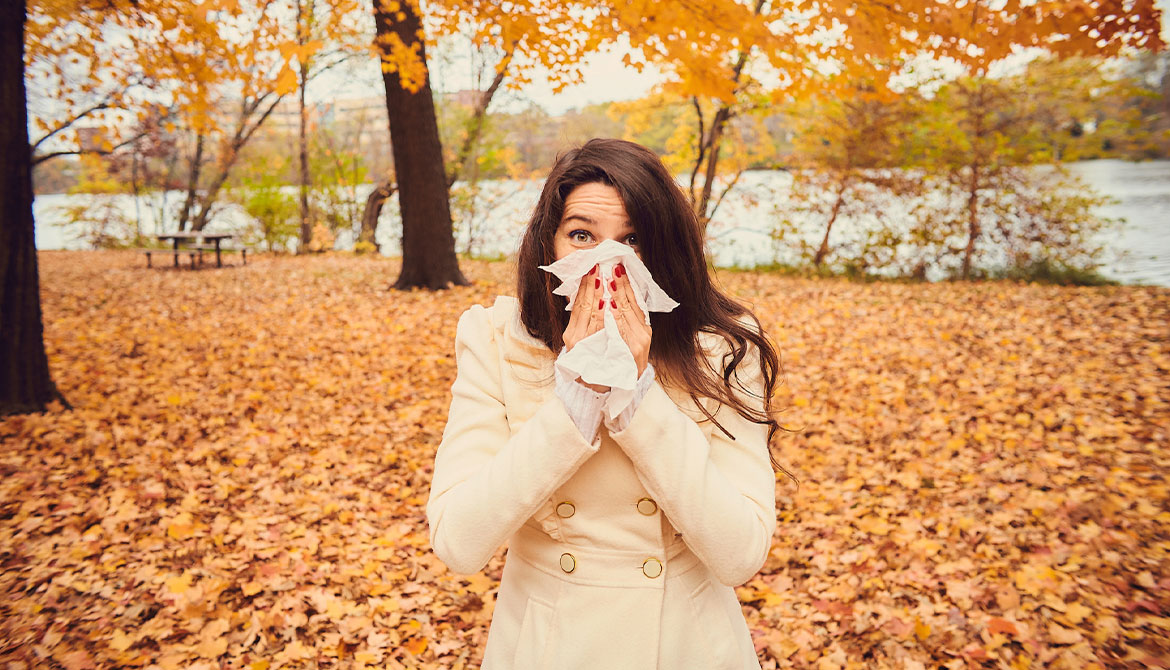Autumn Has Arrived, Flu Is at the Door: Which Vaccine Should You Choose This Year?
With the autumn season, the weather gets cooler, schools open, and time spent in enclosed spaces increases. All these factors facilitate the spread of the flu virus. The most effective protection method against this recurring situation is getting a flu vaccine on time.
So, which flu vaccine should be preferred in the 2025 season, who should definitely get vaccinated, and when is the most appropriate time?
Why Is the Flu Vaccine Important?
Flu (influenza) is a contagious respiratory disease characterized by high fever, fatigue, muscle pain, and cough. Although it is usually mild, it can lead to serious complications such as pneumonia, bronchitis, or sinusitis, especially in risk groups. Since virus types change every year, seasonal flu vaccine is updated each season, which increases its protective effect.
Who Should Get the Flu Vaccine?
While the flu vaccine is beneficial at all ages, it is vital for some groups:
- Those aged 65 and over
- People with chronic diseases (those with asthma, COPD, diabetes, heart or kidney disease)
- Immunocompromised individuals (those undergoing cancer treatment, those using immunosuppressive drugs)
- Pregnant women and women planning pregnancy
- Healthcare workers and nursing home staff
- Children aged 6 months to 5 years
- Those living in the same house with elderly or chronically ill people
Vaccination in these groups supports both individual protection and public health.
When Should the Flu Vaccine Be Given?
The protective effect of the vaccine typically develops within 2 weeks and lasts approximately 6 months.
Therefore, getting vaccinated in October and November is most appropriate before the flu season begins. However, even if you’re late, vaccination can still be done during the epidemic period — protection is still possible.
Which Flu Vaccine Should Be Preferred This Year?
For the 2025 season, there are three main vaccine types in Turkey in accordance with World Health Organization (WHO) recommendations:
- Quadrivalent Inactivated Vaccines:
Provides protection against four different influenza strains. Therefore, it is the most frequently recommended and most widely used vaccine type. - High-Dose or Adjuvanted Vaccines:
Particularly preferred for individuals over 65 to enhance immune response. - Live Nasal (Nasal Spray) Vaccine:
Can be administered to individuals aged 2-49 with strong immune systems, but it is available in limited quantities in Turkey.
Vaccine selection should be made according to the person’s age, health status, and any chronic diseases with physician recommendation.
Who Should Not Get the Flu Vaccine?
- Babies under 6 months
- Those allergic to vaccine contents
- Those with febrile illness should get vaccinated after recovery.
Early Protection for a Healthy Winter
Flu is a disease that recurs every year but is preventable. Autumn season is the most appropriate time to get vaccinated. Don’t neglect your flu vaccine this year to protect your own and your loved ones’ health.
Frequently Asked Questions: What You Need to Know About Flu Vaccine
Should the flu vaccine be given every year?
Yes. Since flu viruses undergo genetic changes every year, vaccine content is renewed each season.
The previous year’s vaccine no longer provides adequate protection. Therefore, the flu vaccine should be repeated every autumn.
Does protection begin immediately after getting the flu vaccine?
No, the protective effect of the vaccine develops in approximately 10-14 days.
Therefore, it is best to get vaccinated in October or November before the flu season begins.
Can the flu vaccine be given together with the Covid-19 vaccine?
Yes. According to current medical guidelines, the flu vaccine can be safely given on the same day as the Covid-19 vaccine or at different times. It is sufficient to administer them at different injection sites.
Does the flu vaccine cause illness?
No. The flu vaccines administered in Turkey contain dead (inactivated) virus. Therefore, they do not cause flu, but short-term fatigue, muscle pain, or low-grade fever may occur due to the immune system response.
How long does the flu vaccine protect?
The vaccine’s protection lasts an average of 6 months. After this period, protection begins to decrease, which is why it needs to be repeated every year.
Can people with allergies get the flu vaccine?
In individuals with egg allergy, new generation flu vaccines can generally be safely administered.
However, people who have had a serious allergic reaction (anaphylaxis) to the vaccine in the past should definitely consult a physician.
For whom is the flu vaccine free?
The Ministry of Health provides free flu vaccine to risk groups (over 65, those with chronic diseases, pregnant women, healthcare workers) every year. The administration time and covered groups are updated each season.
What side effects can the flu vaccine cause?
Most common side effects:
Redness or pain at injection site
Mild fever
Muscle and joint pain
These effects usually resolve spontaneously within 1-2 days.
Should children be given the flu vaccine?
Yes. Children aged 6 months to 5 years are at high risk for flu.
Vaccination in this age group reduces the risk of serious infection and complications.
For whom is the flu vaccine not suitable?
Babies under 6 months
Those with serious allergy to vaccine contents
Those with febrile infection (should be given after recovery)
Flu is a disease that can cause serious health problems, especially in risk groups.
With the right vaccine at the right time given every autumn, it is possible to have a healthy winter.
Prof. Dr. Elif Aksoy
Otolaryngology Specialist
Teşvikiye ENT Group – Istanbul
You can safely consult for your voice, swallowing, and respiratory health.


